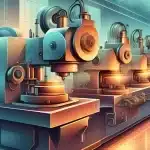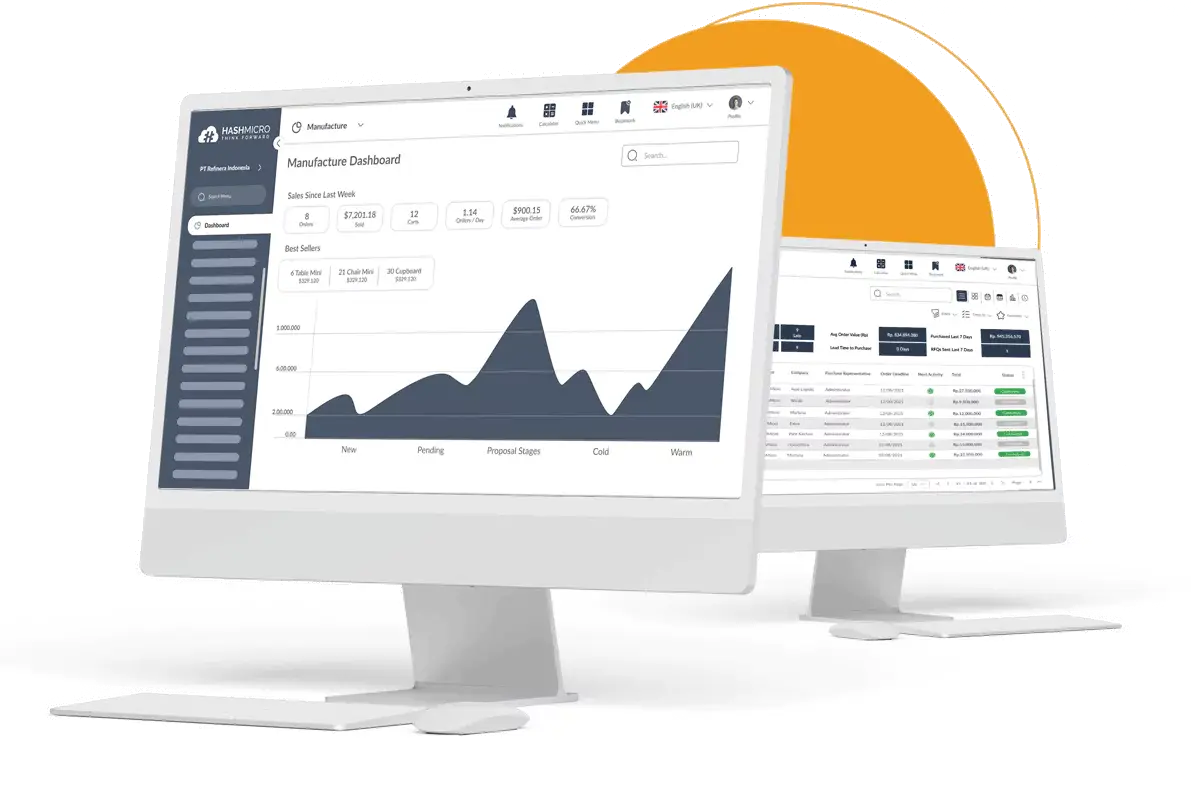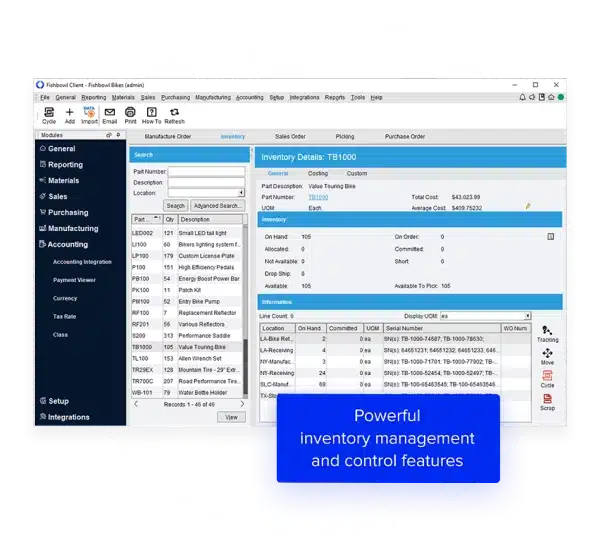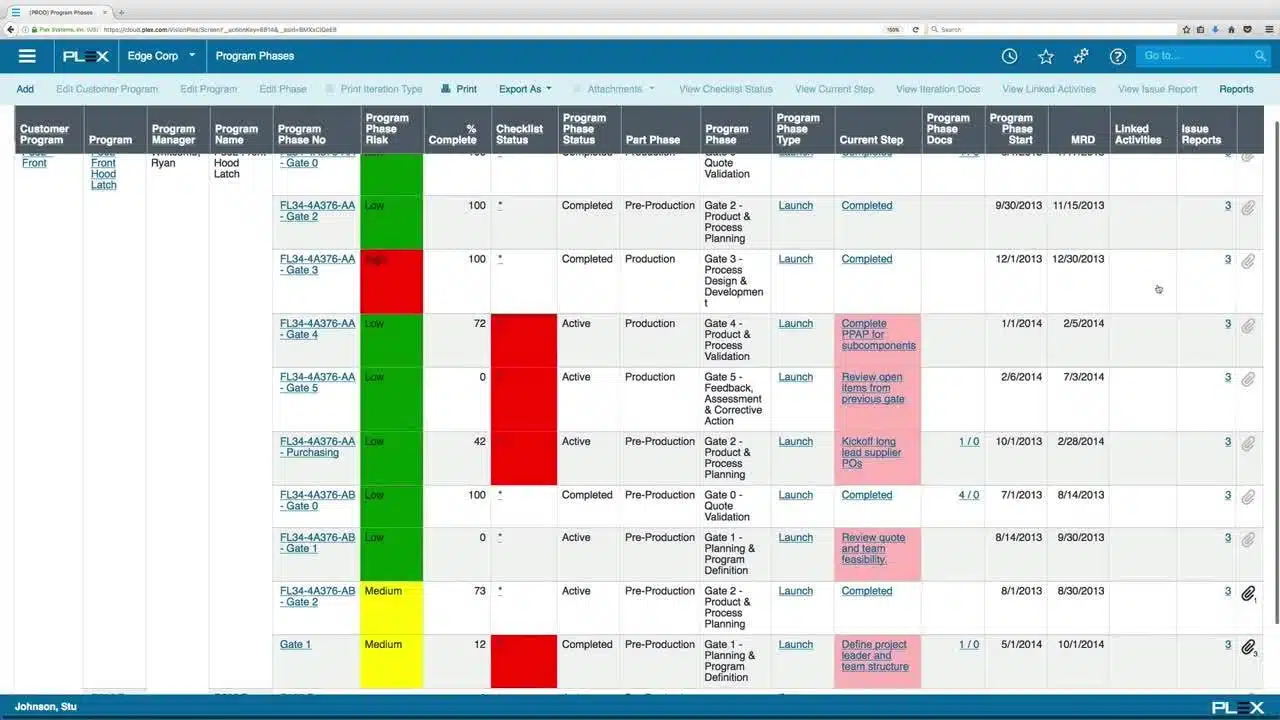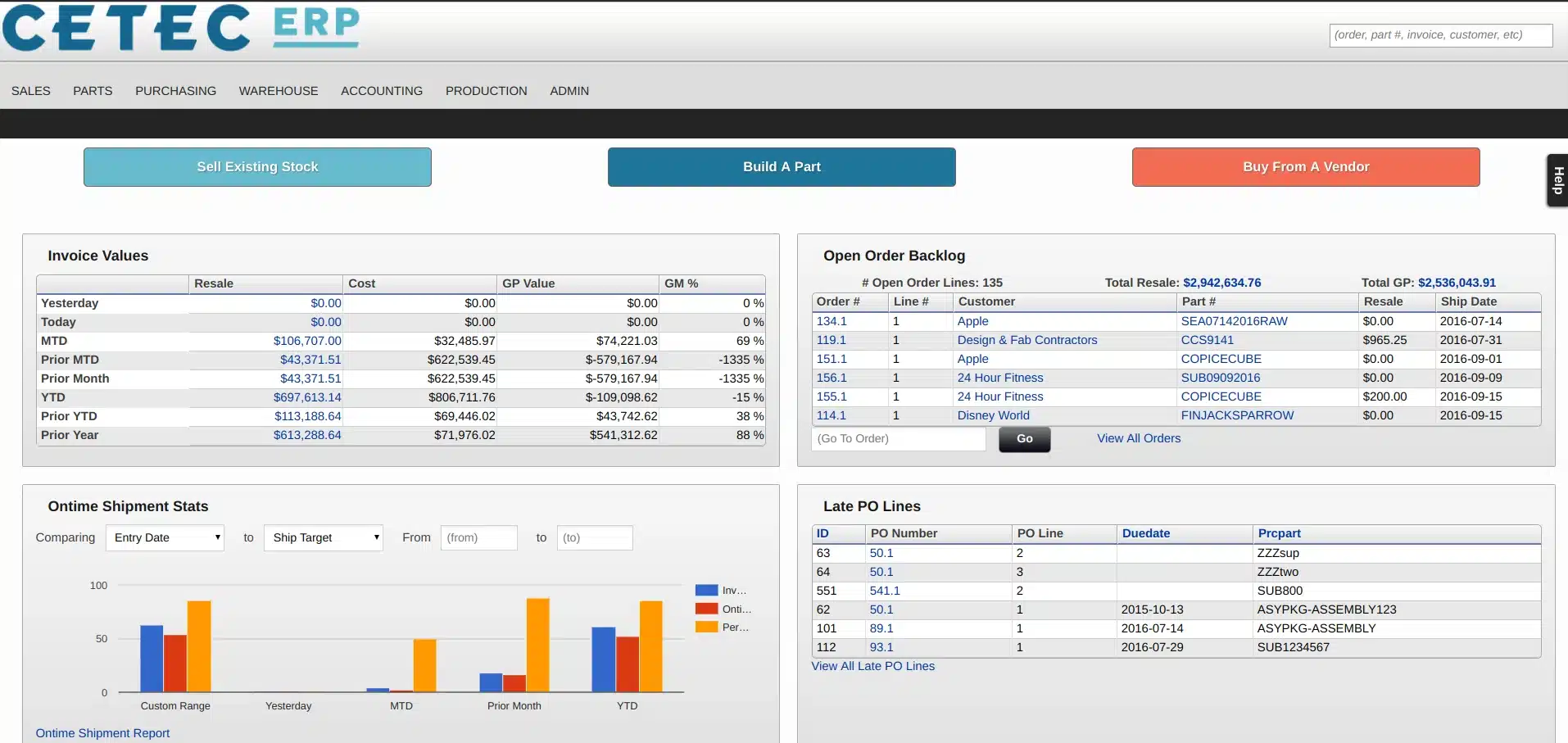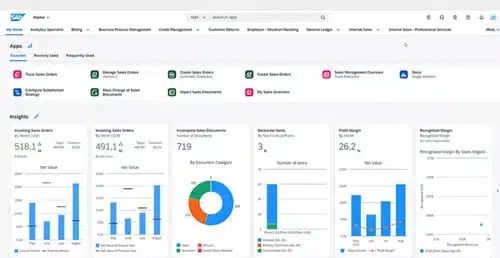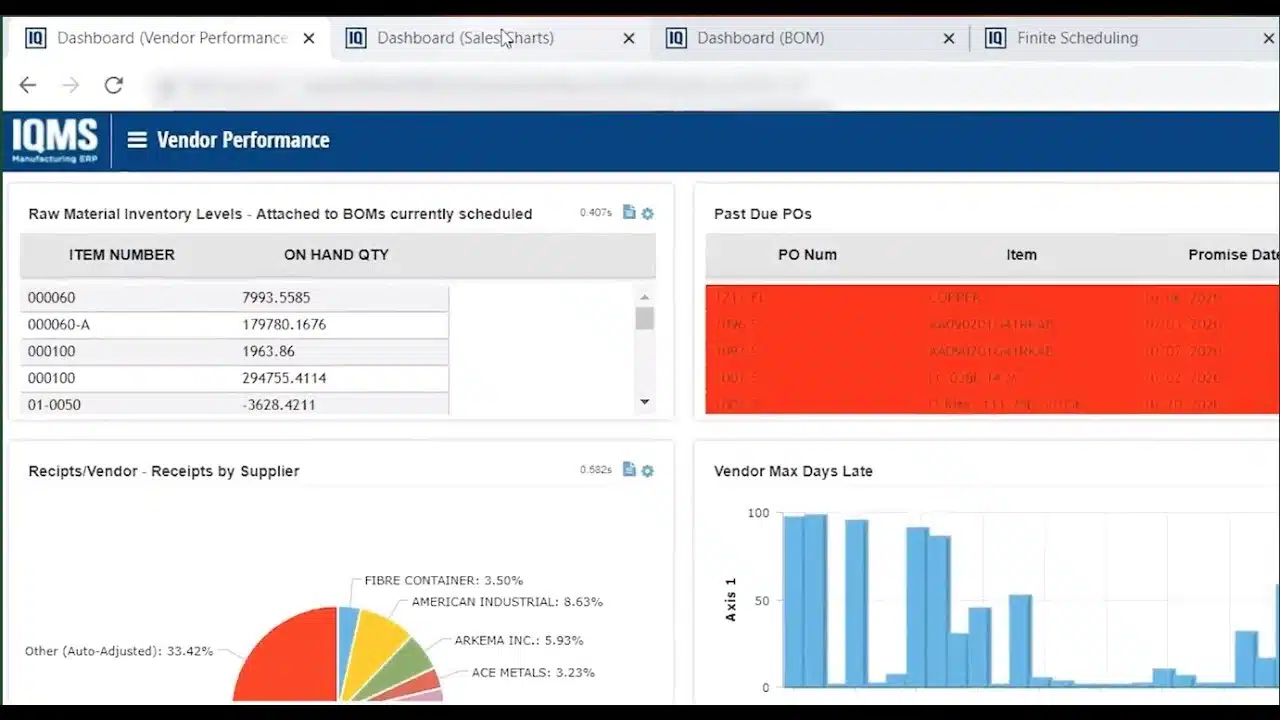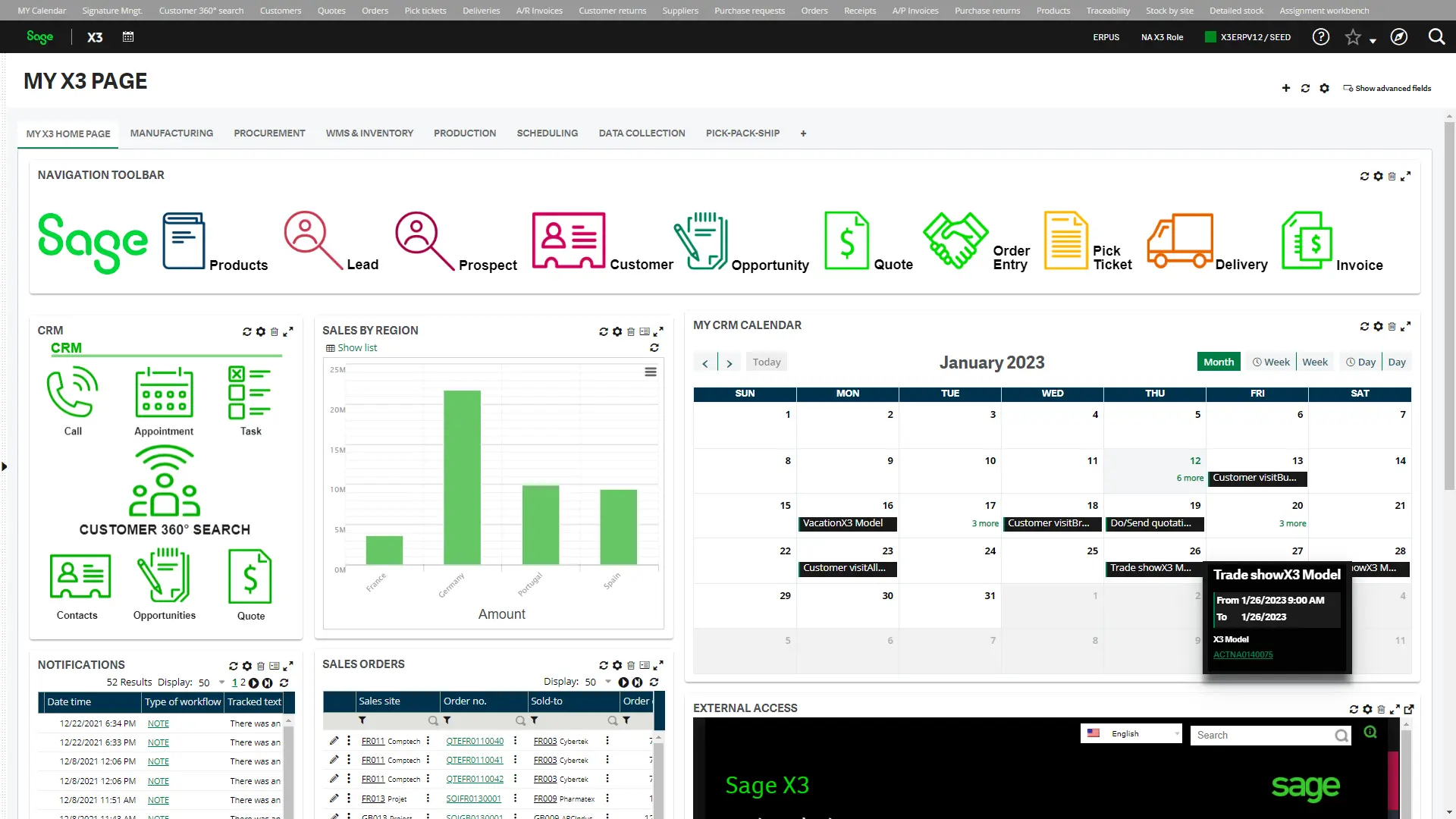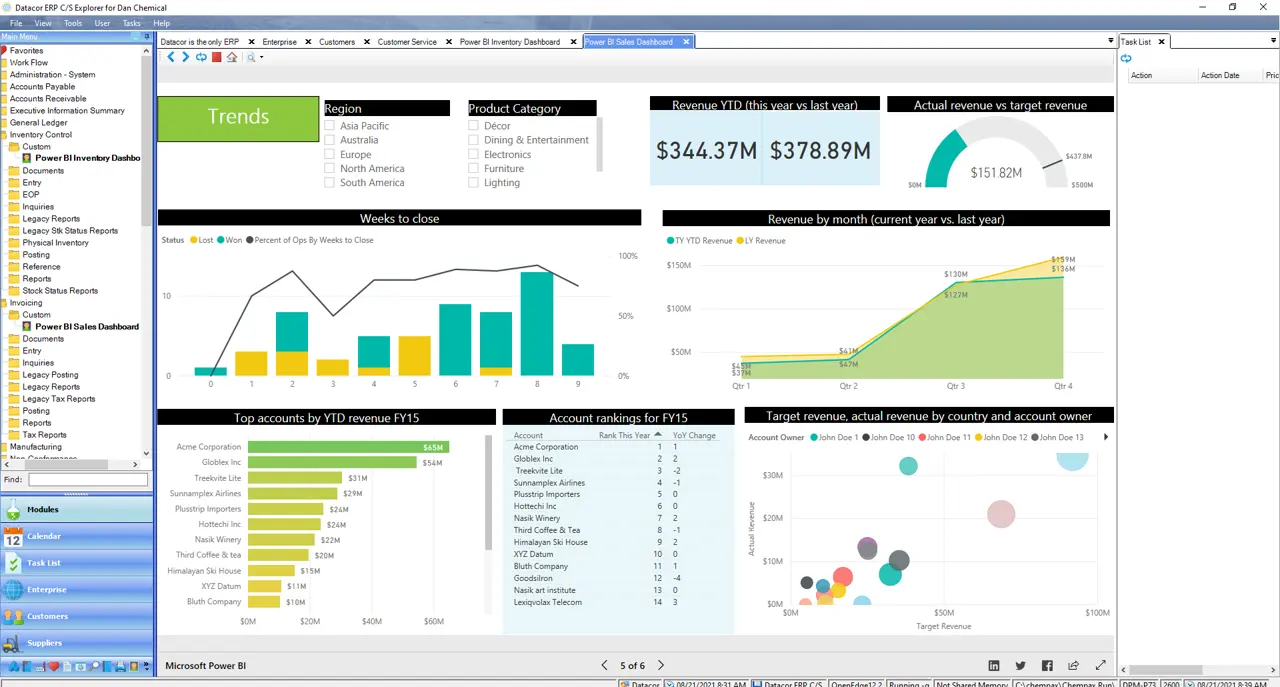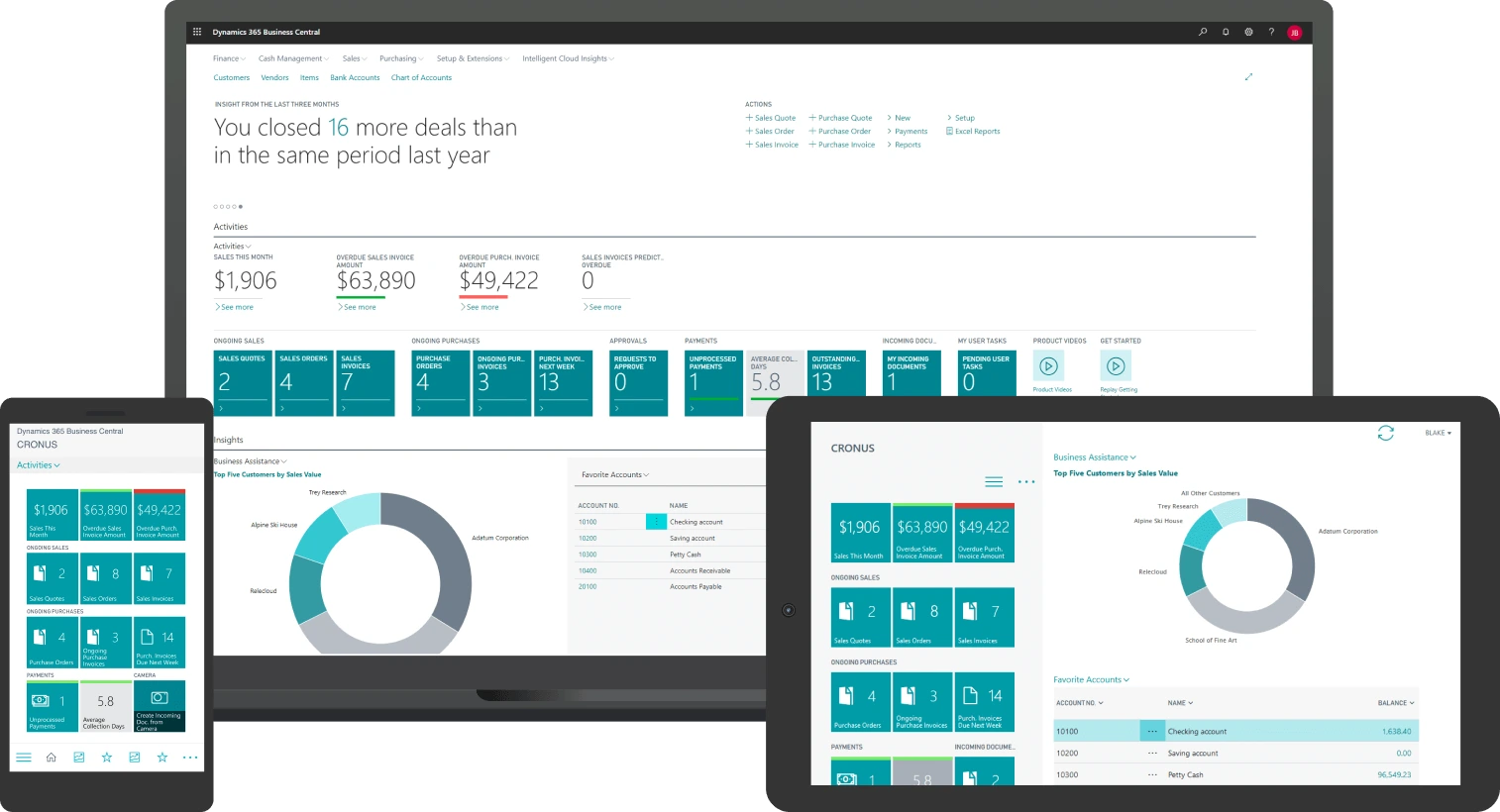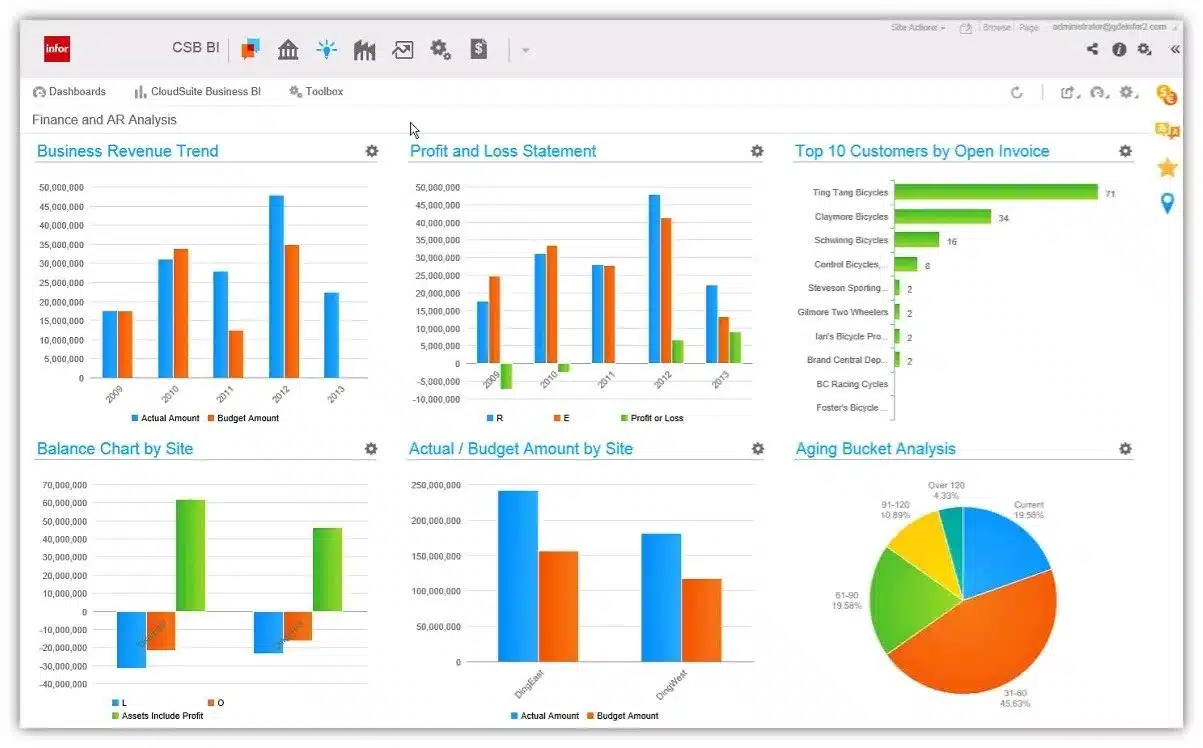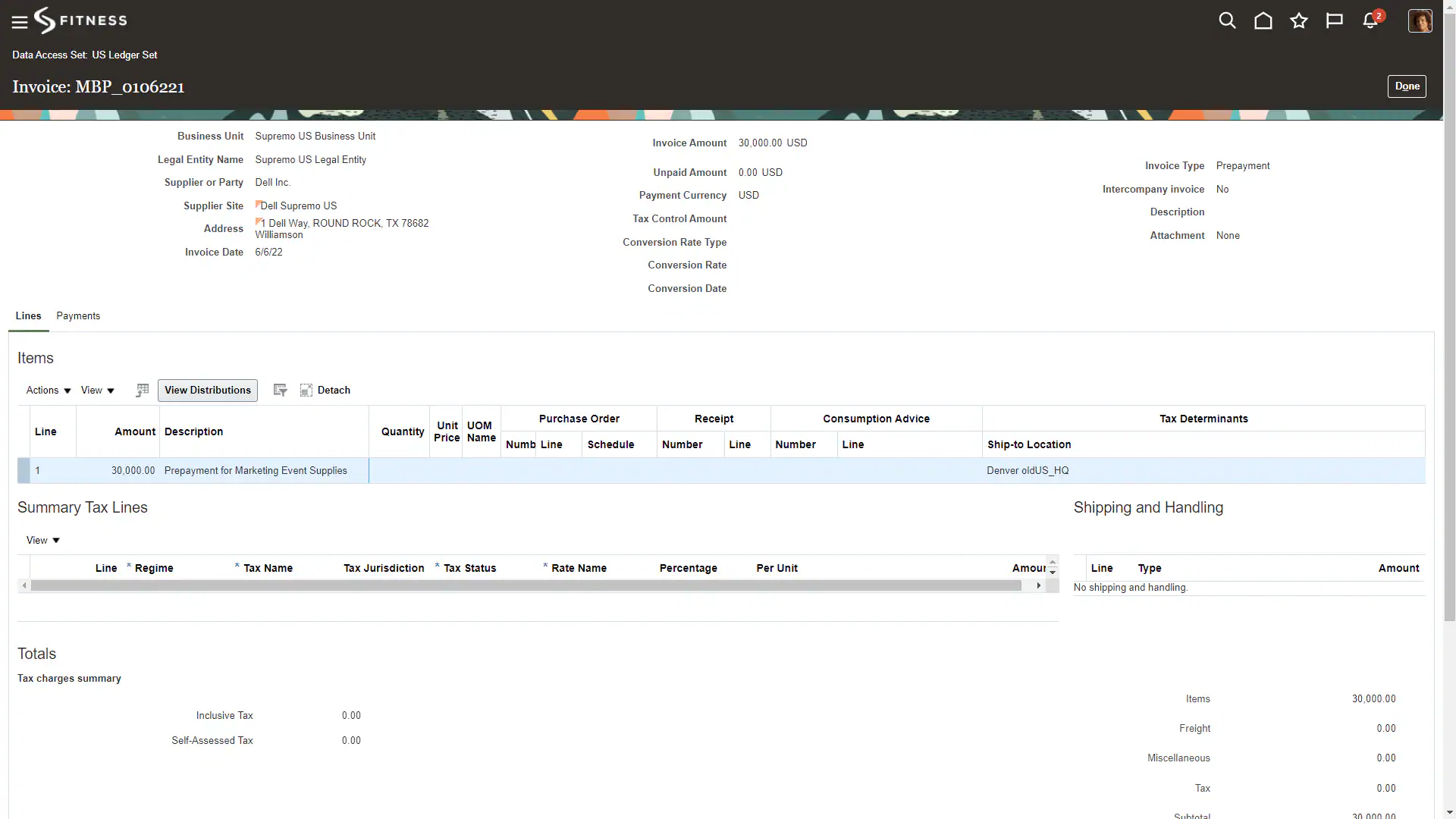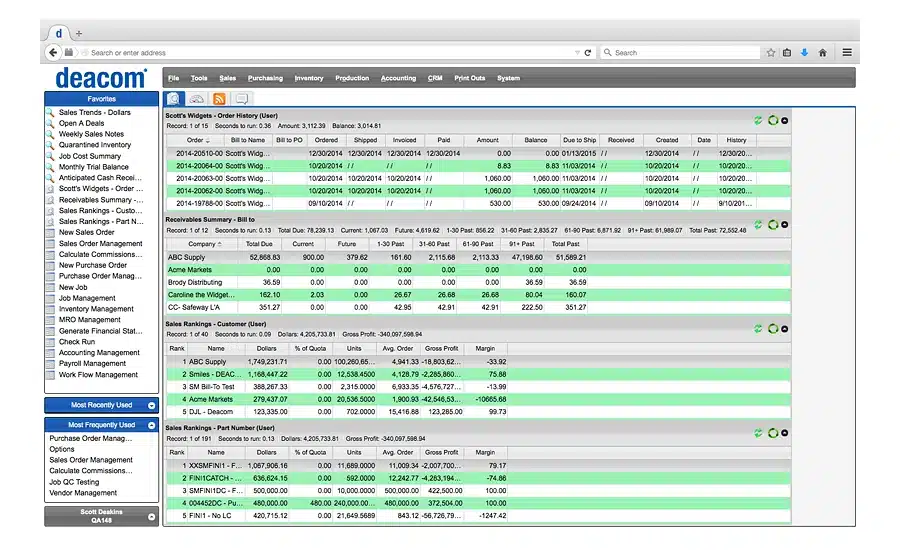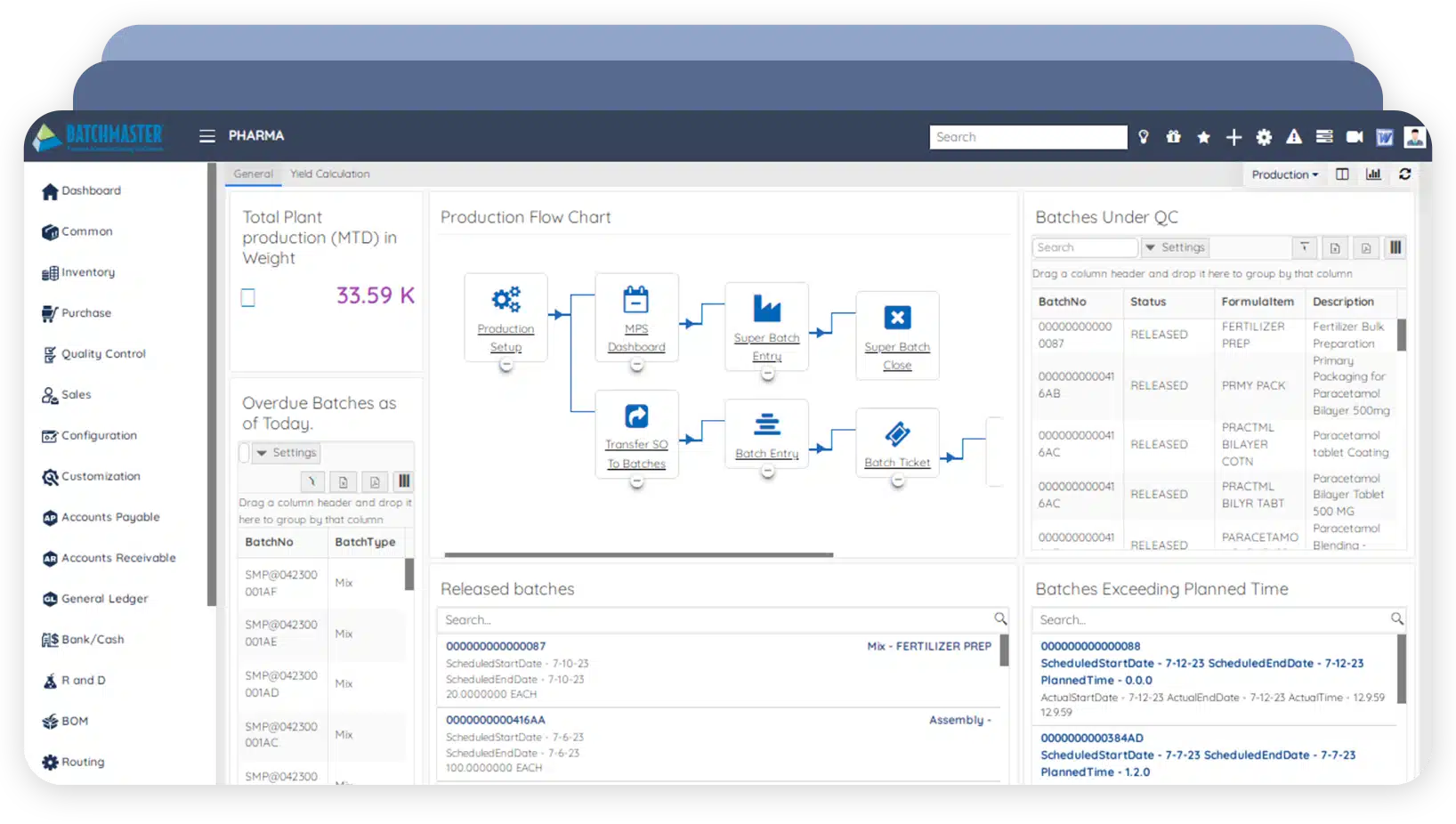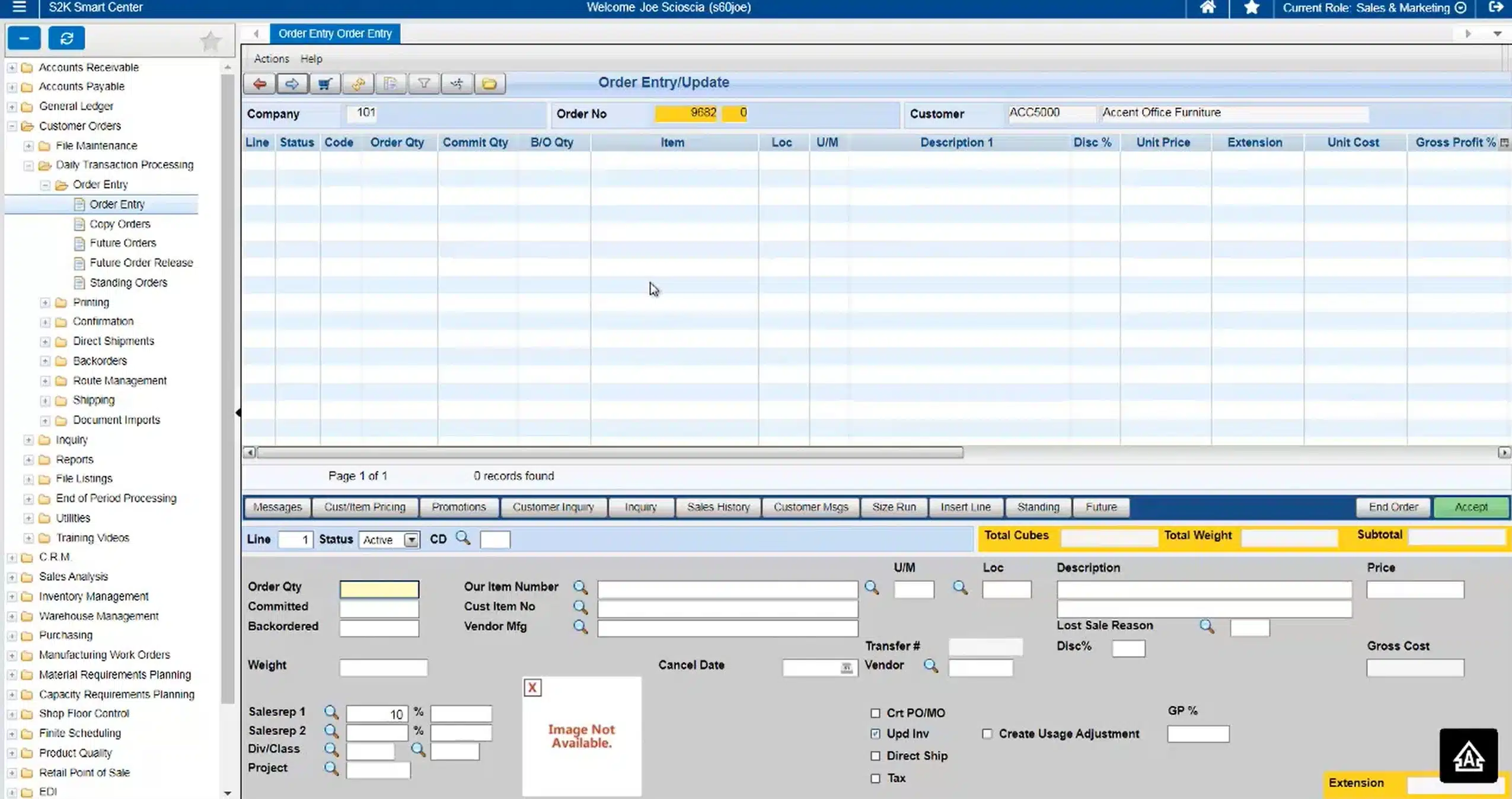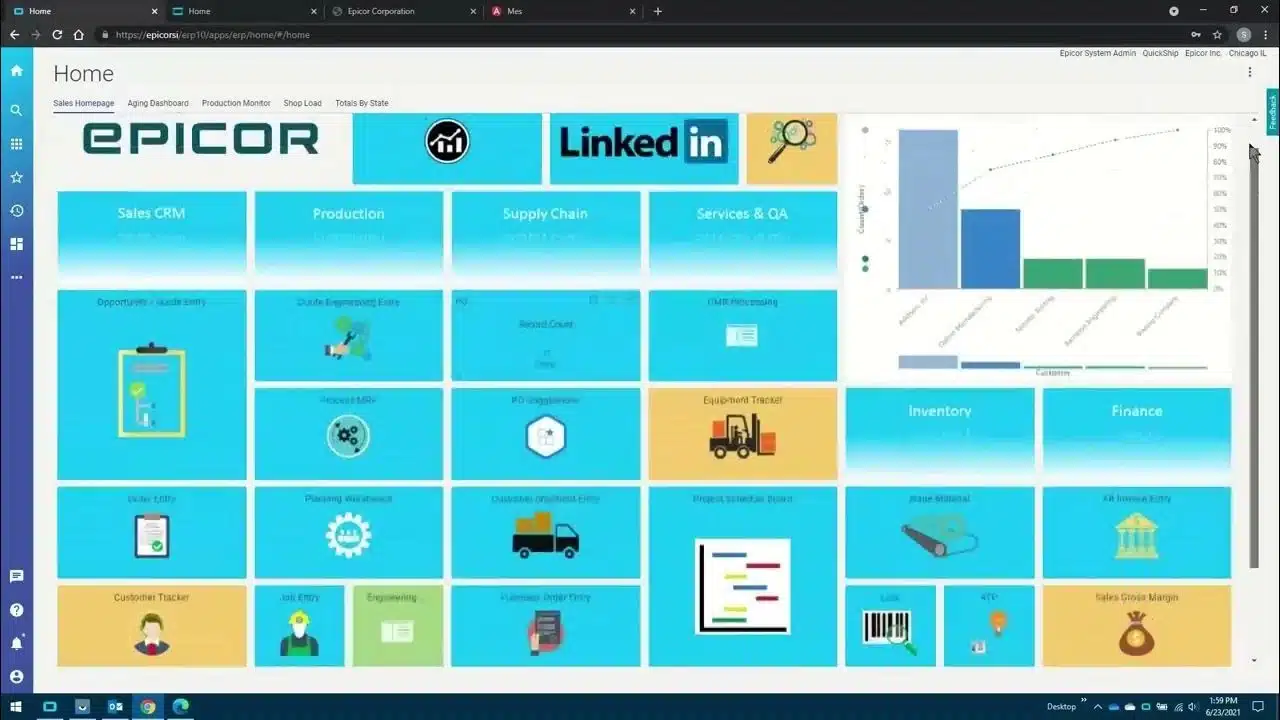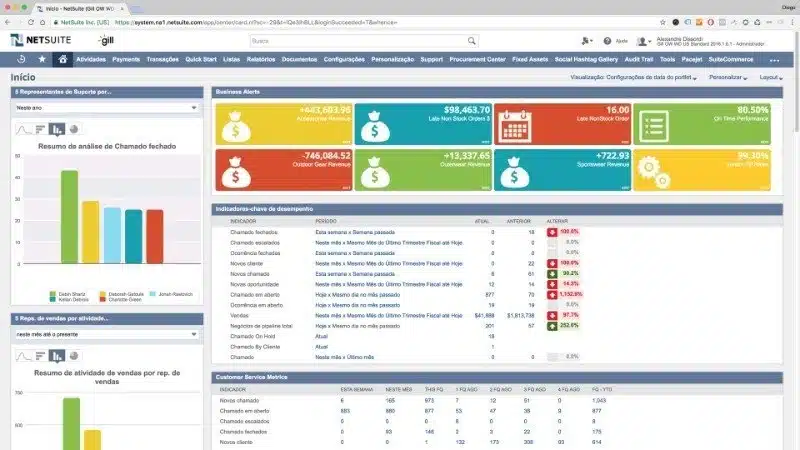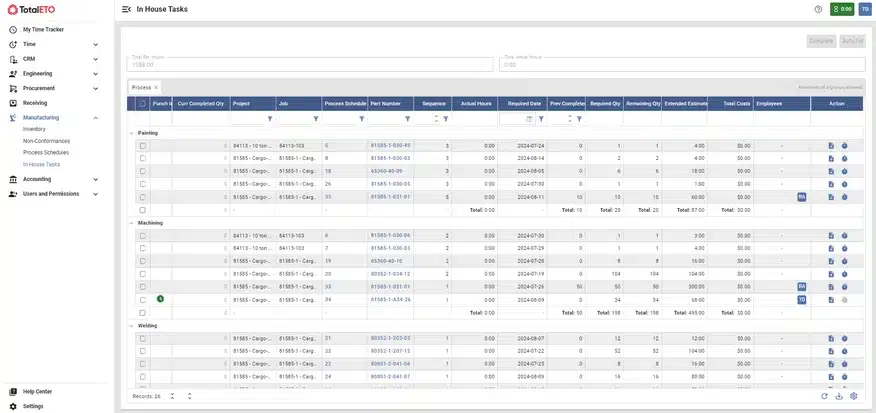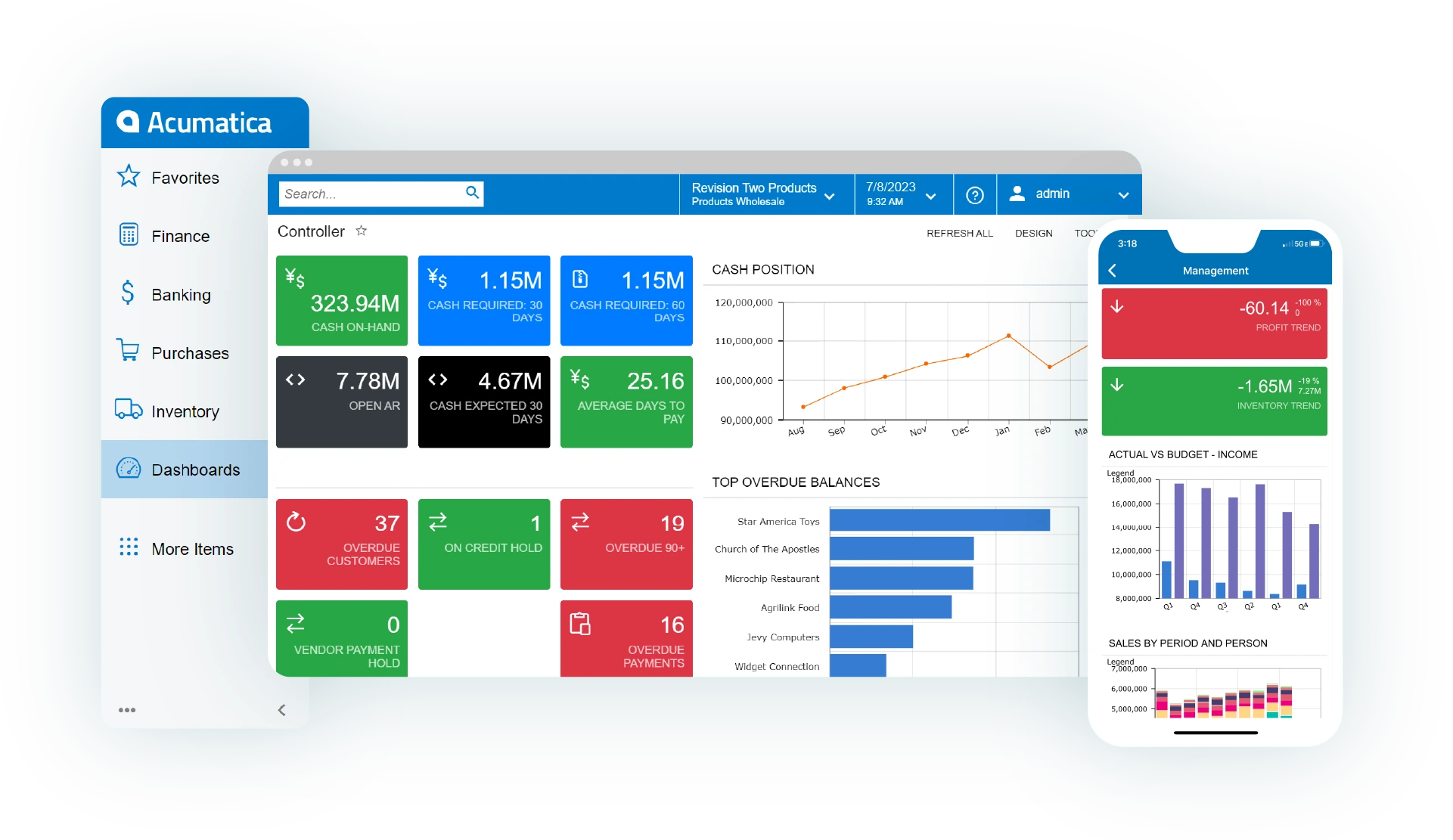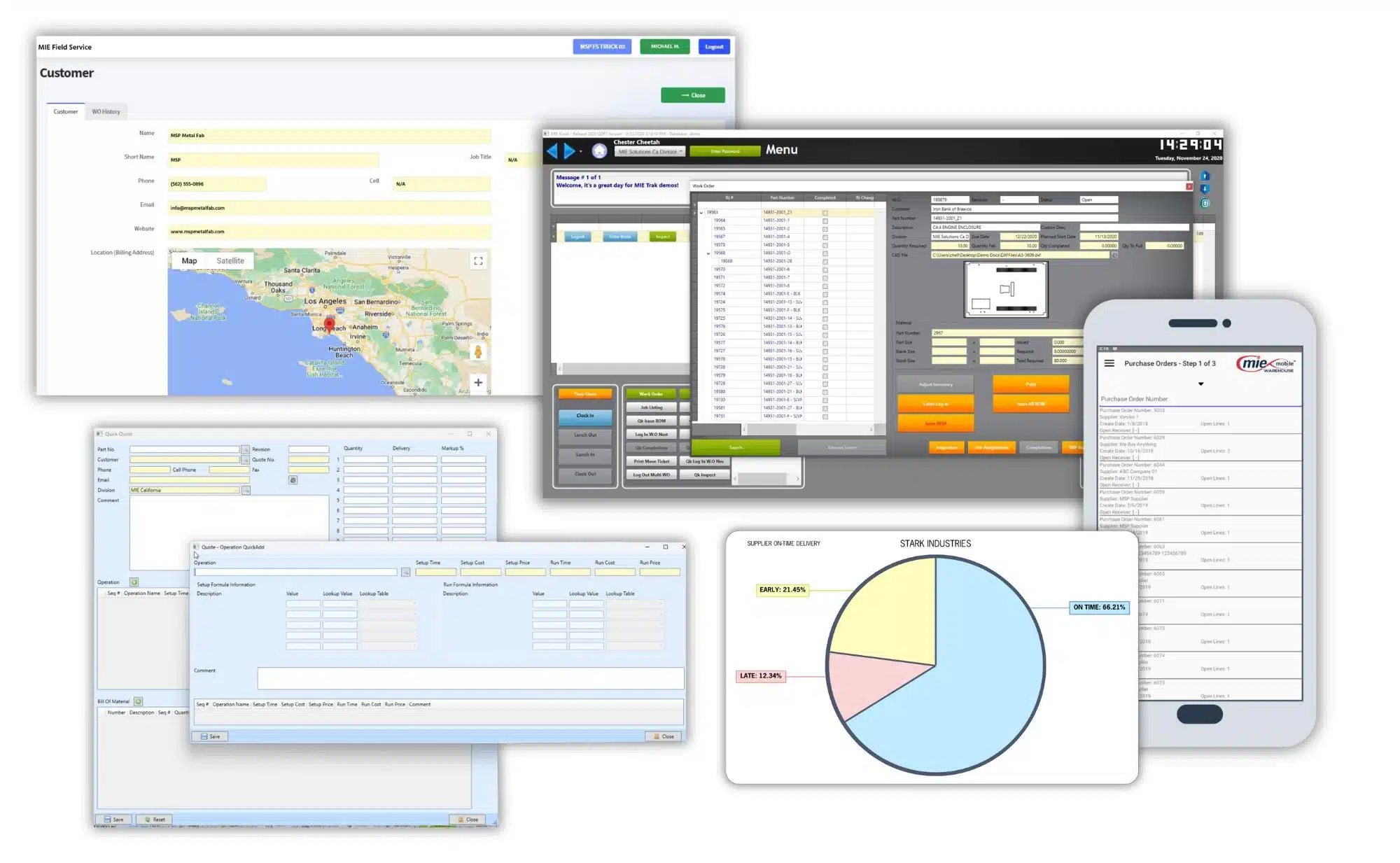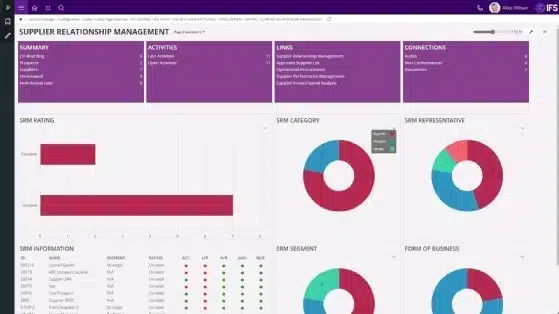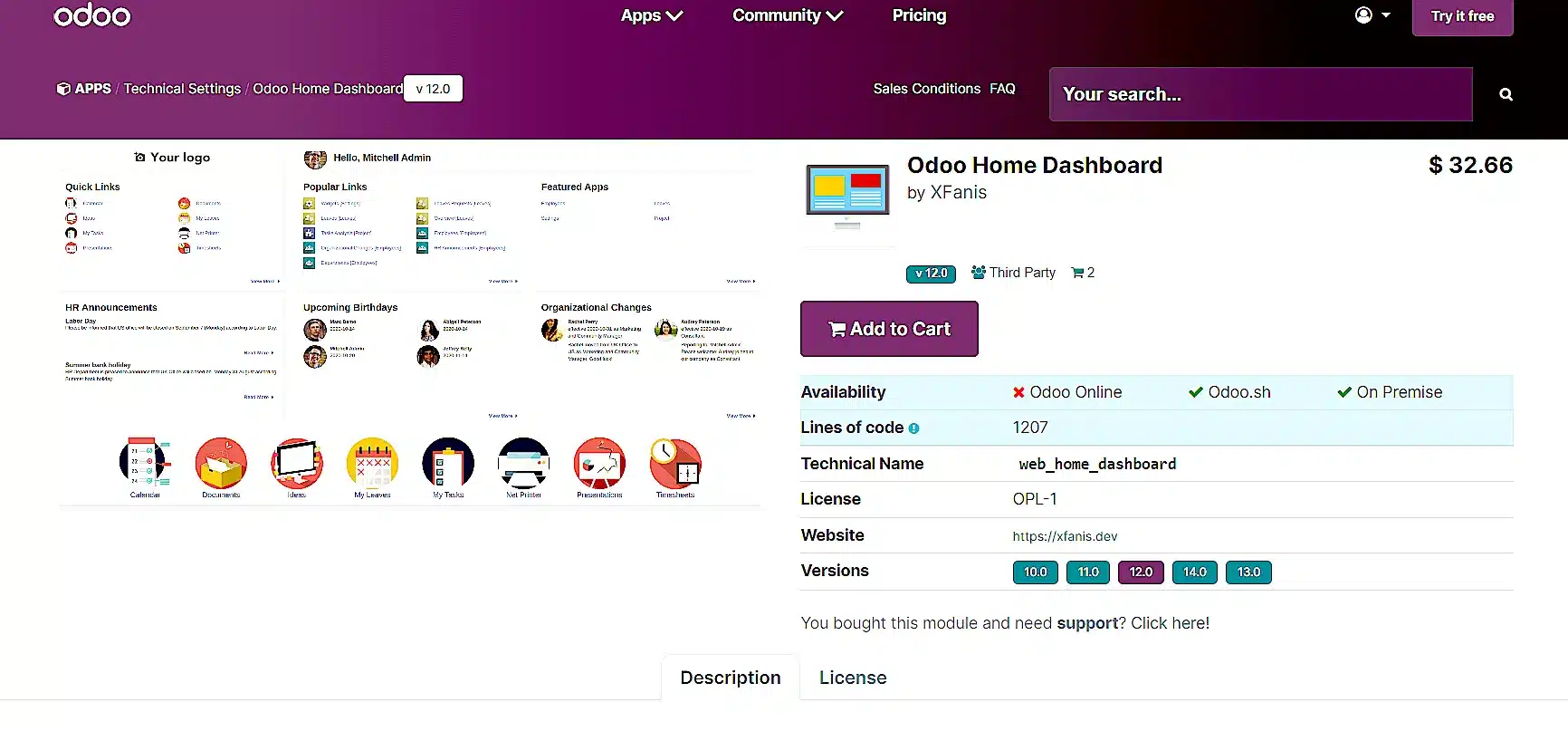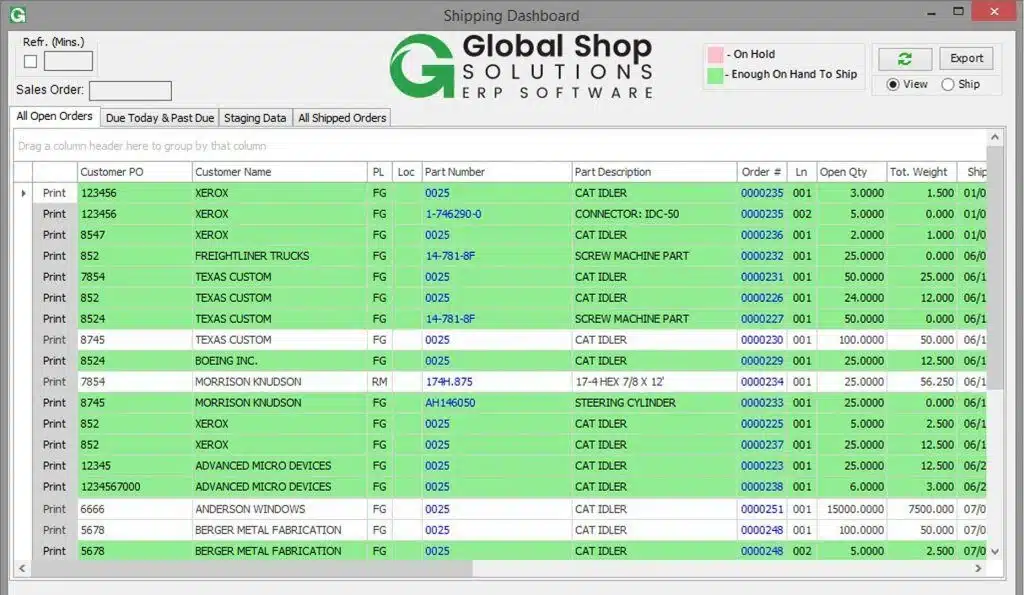The rubber industry in the Philippines faces significant challenges, including fluctuating raw material costs, stringent quality demands, and tight production schedules. An ERP system for rubber industry can streamline processes, ensure compliance, and keep operations running smoothly.
With so many moving parts in rubber manufacturing, having the right ERP system isn’t just helpful. Ito ay mahalaga. It integrates everything from inventory management to quality control, making it crucial to select a solution that truly meets your needs.
Nagtataka kung aling mga ERP system ang namumukod-tangi para sa mga negosyong goma sa Pilipinas? With this purpose in mind, keep reading to explore the top options that can transform your operations and give you a competitive edge.
Table of Contents

Key Takeaways
|
What is an ERP System for Rubber Industry?
An ERP system for the rubber industry is specialized enterprise resource planning software designed to manage and integrate all core business processes of companies involved in rubber manufacturing and processing.
It helps rubber businesses manage production, inventory, quality control, procurement, sales, and distribution all in one platform. This type of ERP often includes industry-specific features such as batch tracking, formulation management, machine maintenance scheduling, and compliance reporting.
Those features, when integrated into manufacturing software, are tailored to the unique needs of rubber production, whether for tires, industrial components, or consumer goods.
How Does the ERP System for Rubber Industry Work?
An ERP for rubber industry works by integrating all your key business processes into a single, centralized platform. Here’s how it generally operates:
- Manages production workflows: From mixing rubber compounds to molding and curing, the ERP tracks each step, ensuring the right formulas and processes are followed.
- Monitors inventory and raw materials: It keeps precise records of rubber grades, chemicals, and finished goods, reducing waste and avoiding stockouts. Integrated with manufacturing asset management software, it also helps track the usage and maintenance of critical production equipment, ensuring optimal performance and minimizing downtime.
- Handles sales and order management: From receiving orders to scheduling production and deliveries, everything is connected, improving response times.
- Supports quality control and compliance: It documents test results, certifications, and regulatory requirements, which are critical in the rubber products industry.
- Integrates finance and costing: Costs are automatically captured throughout production, giving accurate margins and financial reports.
In short, an ERP for the rubber industry creates a real-time, end-to-end view of operations, enabling managers to make faster, data-driven decisions, maintain high quality, and keep production running smoothly.
The Top 22 ERP Systems for the Rubber Industry
Selecting the right ERP system is essential for rubber manufacturers to remain competitive and uphold high-quality standards. To help you find the best fit, here’s a look at the top 22 ERP software for rubber manufacturing industry.
1. HashMicro ERP System for Rubber Industry
HashMicro Manufacturing Software is the Philippines’ premier solution for the rubber industry, trusted by over 2,000 leading enterprises across Southeast Asia. In addition, it provides a robust system that helps optimize resource utilization by ensuring seamless manufacturing processes.
HashMicro’s prominent features include:
- Multi-level Bill of Material (BoM): Creates detailed lists of raw materials and components for complex products with multiple assembly levels.
- Comprehensive quality checks for production goods: Assesses materials, WIP, and finished goods based on both qualitative and quantitative criteria.
- Manufacturing subcontractor management: Tracks subcontractors’ performance, timelines, and work quality to ensure outsourced tasks meet specifications and quality standards.
- Materials Requisition/Purchase Planning (MRP): Automates material requisitioning and planning to ensure the right materials are available on time.
- Finished & rejected goods tracking report: Tracks finished and rejected goods to monitor production quality and identify improvement areas.
- Real-time moving production cost report: Provides up-to-date production cost insights, tracking labor and material expenses in real-time.
| Pros | Cons |
|
|
Are you interested in implementing the HashMicro ERP System for Rubber Industry for your business? Click the banner below to explore available pricing options.

2. Fishbowl
Fishbowl is an ERP system for rubber industry that offers inventory management, warehouse organization, and manufacturing features. Additionally, it enables real-time inventory tracking, streamlines warehouse processes, and ensures smooth production workflows.
Fishbowl’s prominent features include:
- Inventory tracking: Monitors stock levels, locations, and movements to ensure accurate records.
- Bills of Materials (BoM): Lists the materials and components needed to manufacture a product, ensuring their availability.
- Purchase order management: Manages the creation, approval, and tracking of orders for materials and supplies.
| Pros | Cons |
|
|
3. Plex Manufacturing Cloud
Plex Manufacturing Cloud is an ERP software for rubber manufacturing industry built from the plant floor up. Moreover, it helps businesses run smarter, leaner, and more efficiently while staying prepared for the future.
Plex’s prominent features include:
- Financial management: Handles accounting, budgeting, and financial reporting to track income and expenses.
- Materials management (MRP/BOM): Manages materials and components for production, ensuring timely availability and efficient use.
- Sales Order Management (SOM): Tracks and processes customer orders to ensure accurate fulfillment and delivery.
| Pros | Cons |
|
|
4. Cetec ERP
Cetec is an ERP for rubber industry that offers a fully integrated system. In addition, it provides manufacturers with a cloud-based, user-friendly, technologically advanced platform to increase both capacity and efficiency in one platform.
Cetec’s prominent features include:
- Materials management (MRP/BOM): Manages materials, components, and production requirements to ensure availability and efficient use.
- Production management: Tracks and schedules production workflows to ensure efficient resource allocation and timely completion of tasks.
- Financial management: Handles accounting, budgeting, and financial reporting, ensuring accurate tracking of revenue and expenses.
| Pros | Cons |
|
|
5. SAP S/4HANA
SAP S/4HANA is an ERP system for rubber industry that helps manufacturers adopt new business practices and manage change quickly. Additionally, it coordinates internal and external resources while leveraging the predictive capabilities of AI.
SAP’s prominent features include:
- Managing customer interactions: Tracks customer interactions, stores contact info, and automates communication to manage leads and opportunities.
- Coordinating the flow of goods and services: Manages inventory, procurement, and logistics to ensure timely availability and efficient delivery.
- Planning and managing production materials: Integrates both MRP and BOM to ensure the right materials are ordered and available for production.
| Pros | Cons |
|
|
6. DELMIAWorks
DELMIAWorks is an ERP software for rubber manufacturing industry that provides comprehensive functionality to manage business processes. Moreover, it helps improve efficiency across various operations.
DELMIAWorks’s prominent features include:
- Managing financial operations: Handles accounting, budgeting, and financial reporting to track revenues and expenses.
- Managing production workflows: Tracks production schedules, resource allocation, and ensures a smooth manufacturing process.
- Managing customer orders: Processes and tracks sales orders, ensuring timely fulfillment and accurate inventory.
| Pros | Cons |
|
|
7. Sage X3 ERP
Sage X3 is an ERP for rubber industry that offers integrated features for financial management, sales, and customer service. In addition, it supports distribution, inventory, manufacturing, and business intelligence functions.
Sage’s prominent features include:
- Managing global operations: Supports businesses operating in multiple countries, handling various currencies, tax laws, and compliance regulations across regions.
- Handling financial processes: Manages accounting, budgeting, and financial reporting, ensuring accurate tracking of financial transactions and resource allocation.
- Managing production processes: Tracks production workflows, schedules, and resources, ensuring smooth operations and meeting production goals efficiently.
| Pros | Cons |
|
|
8. Datacor ERP
Datacor is an ERP system for rubber industry that is tailored for chemical process manufacturers and distributors. This scalable solution suits companies of all sizes and offers both on-premise and hosted deployment options.
Datacor’s prominent features include:
- Managing operations across multiple locations: Enables businesses to control and coordinate processes across different sites, ensuring consistent operations, inventory, and data management.
- Supporting global operations: Allows businesses to manage operations in multiple countries, such as handling different currencies, tax regulations, and compliance standards.
- Overseeing financial processes: Manages accounting, budgeting, and financial reporting to track revenue, expenses, and overall economic performance.
| Pros | Cons |
|
|
9. Microsoft Dynamics 365 Business Central
With quick implementation and easy customization to cater to highly specialized manufacturing industries, Microsoft Dynamics 365 Business Central is an ERP software for rubber manufacturing industry that streamlines and automates business processes.
Microsoft Dynamics 365’s prominent features include:
- Managing operations across multiple locations: Coordinates both processes and resources across various sites to ensure consistency.
- Supporting global operations: Manages international operations with support for different currencies and regulations.
- Managing production materials: Tracks and manages materials using both MRP and BOM for efficient production.
| Pros | Cons |
|
|
10. INFOR Cloudsuite Process
INFOR Cloudsuite Process is an ERP for the rubber industry that provides solutions with top-tier functionality tailored for various sectors. Specifically, it serves industries such as chemical, distribution, equipment, fashion, food and beverage, and industrial manufacturing.
INFOR’s prominent features include:
- Managing the flow of goods and services: Coordinates procurement, production, and logistics for smooth material movement.
- Overseeing production processes: Tracks both production schedules and resources to ensure efficient manufacturing.
- Managing production materials: Uses both MRP and BOM to manage materials and components for production.
| Pros | Cons |
|
|
11. Oracle Fusion Cloud ERP
Oracle is an ERP system for rubber industry that offers manufacturers advanced features such as AI to automate tasks, analytics to respond to market changes in real-time, and automatic updates to remain up-to-date and maintain a competitive edge.
Oracle’s prominent features include:
- Managing customer interactions: Tracks and manages customer data, such as helping businesses monitor sales activities, maintain customer relationships, and improve communication.
- Coordinating supply chain operations: Oversees procurement, production, and logistics to ensure the smooth flow of materials and products across the supply chain.
- Processing and managing sales orders: Manages the entire sales order process, from creation to fulfillment, ensuring accurate order tracking and timely delivery.
| Pros | Cons |
|
|
12. Deacom ERP
Deacom is an ERP software for rubber manufacturing industry that provides powerful capabilities and flexibility for expanding batch and process manufacturing businesses. In addition, it simplifies complex and industry-specific processes into more streamlined solutions.
Deacom’s prominent features include:
- Managing global operations: Handles operations across multiple countries, including supporting various currencies and regulations.
- Coordinating operations across locations: Manages both processes and inventory across various facilities to ensure consistency.
- Managing materials for production: Uses both MRP and BOM to ensure materials are available for production.
| Pros | Cons |
|
|
13. BatchMaster Manufacturing
BatchMaster Manufacturing is an ERP for rubber industry that helps growing formula-based manufacturers bring products to market faster and more cost-effectively, while reducing costs and ensuring compliance with both customer demands and regulations.
BatchMaster’s prominent features include:
- Managing operations across locations: Coordinating both processes and resources across multiple sites to ensure consistency.
- Overseeing production processes: Manages both production schedules and resources for efficient manufacturing.
- Coordinating supply chain operations: Oversees procurement, production, and logistics for smooth material flow and timely delivery.
| Pros | Cons |
|
|
14. VAI S2K Enterprise
VAI S2K Enterprise is an ERP system for rubber industry that is built for distribution, manufacturing, and retail. Another key point is that it helps your business tackle industry challenges by automating processes, boosting competitiveness, responsiveness, and profitability.
VAI S2K Enterprise’s prominent features include:
- Managing supply chain operations: Coordinates procurement, production, and logistics to ensure smooth flow of materials and products throughout the supply chain.
- Overseeing production processes: Manages processes including production schedules, workflows, and resources to ensure efficient and timely manufacturing.
- Managing materials for production: Uses both MRP and BOM to track and manage the materials needed for production, ensuring availability and minimizing waste.
| Pros | Cons |
|
|
15. Epicor Kinetic
Epicor Kinetic is an ERP software for rubber manufacturing industry that provides comprehensive end-to-end capabilities for discrete, make-to-order, and mixed-mode manufacturers both in the small and mid-market sectors.
Epicor’s prominent features include:
- Managing customer relationships: Tracks customer interactions, including sales and service, to maintain strong relationships.
- Managing financial operations: Handles accounting, budgeting, and financial reporting for accurate tracking.
- Supporting global operations: Manages multi-country operations, including currency, tax, and compliance.
| Pros | Cons |
|
|
16. NetSuite ERP
NetSuite is an ERP for rubber industry that provides a modern, scalable cloud-based solution to manage all key back-office operations and financial processes. Moreover, it empowers businesses of all sizes across various industries worldwide.
NetSuite’s prominent features include:
- Managing financial operations: Handles accounting, budgeting, and financial reporting.
- Managing production processes: Oversees production schedules, including resource allocation and performance, to ensure optimal efficiency.
- Managing materials for production: Tracks and manages materials using MRP and BOM.
| Pros | Cons |
|
|
17. Total ETO
Offering a unique hold and release feature that ensures exceptional control and communication between the engineering and purchasing teams, Total ETO is an ERP system for rubber industry that is tailored to the workflow of Engineer-to-Order manufacturers.
Total ETO’s prominent features include:
- Managing global operations: Oversees international operations, including encompassing currency, language, and compliance considerations.
- Overseeing manufacturing processes: Tracks and manages production workflows and resources for efficient manufacturing.
- Handling sales orders: Manages the sales order lifecycle, from creation to fulfillment and delivery.
| Pros | Cons |
|
|
18. Acumatica Cloud ERP
Acumatica is an ERP software for rubber manufacturing industry that offers an integrated platform to support your rubber business. Another key point is that it includes an extensive suite of applications for accounting, sales, project management, case management, and customer management.
Acumatica’s prominent features include:
- Multi-site: Manages operations across multiple locations, centralizing control over processes and inventory.
- Multi-national: Supports operations in different countries, including handling currencies, taxes, and compliance.
- Customer Relationship Management (CRM): Tracks customer interactions, sales pipelines, and automates follow-ups.
| Pros | Cons |
|
|
19. MIE Trak Pro
MIE Trak Pro is an ERP for rubber industry that provides a total end-to-end solution both on-premise and in the cloud. In addition, integrated with manufacturing software, this system streamlines all aspects of production, inventory management, and order processing.
MIE’s prominent features include:
- Multi-national: Supports operations across multiple countries, including handling different currencies, tax regulations, and compliance requirements.
- Financial management: Manages financial processes, including accounting, budgeting, and financial reporting.
- Production management: Oversees the entire production process, including scheduling and tracking to resource allocation and performance monitoring.
| Pros | Cons |
|
|
20. IFS Cloud
Combining deep industry expertise to enable planning, managing, and optimizing critical asset availability, service delivery, and workforce productivity, IFS Cloud is an ERP system for the rubber industry.
IFS Cloud’s prominent features include:
- Sales Order Management (SOM): Manages the sales order process, from creation to delivery, ensuring accurate fulfillment and invoicing.
- Supply Chain Management (SCM): Oversees the flow of goods, from procurement to delivery, managing inventory and logistics.
- Customer Relationship Management (CRM): Tracks customer interactions, including managing contacts, communication, and sales follow-ups.
| Pros | Cons |
|
|
21. Odoo ERP System for Rubber Industry
Odoo is an ERP software for the rubber manufacturing industry that offers a wide range of integrated applications to manage production, inventory, and quality control. Additionally, its modular system allows businesses to customize features based on specific needs, providing flexibility and scalability as operations grow.
Odoo’s prominent features include:
- Production tracking: Tracks each stage of production in real time, ensuring work orders stay on schedule.
- Purchase order management: Manages the creation, tracking, and receiving of purchase orders for raw materials and supplies.
- Quality control: Inspects materials and products at various stages to ensure they meet quality standards.
| Pros | Cons |
|
|
22. Global Shop Solutions
Global Shop Solutions is an ERP for the rubber industry that provides comprehensive tools for managing production, inventory, and quality control. Moreover, its integrated system streamlines operations, ensuring real-time tracking and efficient resource allocation across all stages of the manufacturing process.
Global Shop Solutions’ prominent features include:
- Multi-site: Manages operations across multiple locations, providing centralized control over resources and data.
- Production management: Tracks and manages production workflows, schedules, and resource utilization.
- Materials management (MRP/BOM): Integrates both MRP and BOM to ensure materials are available and used efficiently during production.
| Pros | Cons |
|
|
Conclusion
To conclude, an ERP system is crucial for the rubber industry, enabling manufacturers to manage complex processes, maintain quality, and remain competitive. That’s why it’s vital to select a solution that precisely meets your business needs.
HashMicro ERP System for Rubber Industry streamlines everything from production to inventory and financial management. With its powerful automation and real-time insights, it’s built to drive efficiency and growth.
Handa nang makita kung paano nito mababago ang iyong mga operasyon sa pagmamanupaktura? With this in mind, try a free demo today and experience firsthand how HashMicro can simplify your rubber manufacturing processes.

Frequently Asked Questions About ERP System for Rubber Industry
-
What does an ERP system do in the manufacturing sector?
An ERP (Enterprise Resource Planning) system is software that helps manufacturers streamline and integrate key business functions such as finance, HR, production, supply chain, sales, and procurement. It offers a unified view of operations and serves as a single, reliable source of data.
-
What are the three main types of ERP systems?
The most common types are on-premise ERP, cloud-based ERP, and hybrid ERP, which combines both on-premise and cloud-based. Among these, hybrid ERP offers the flexibility of both models.
-
Which industry is the biggest consumer of rubber?
The tire industry is by far the largest user of rubber. However, natural rubber also finds its way into more than 40,000 other products, including automotive hoses and belts, medical gloves, toys, apparel, and many everyday items.





